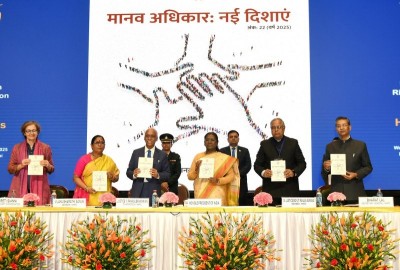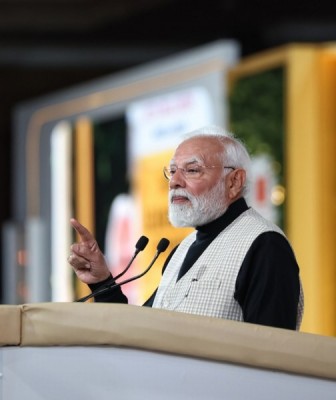
Sterlite Copper plant has been at centre of pollution controversy since 1995, says environmental watchdog CSE
New Delhi, May 23 (IBNS): Environmental watch-dog, the New Delhi based Centre for Science and Environment (CSE), has not only condemned the killing of protesters in Tuticorin but has also brought to light how the 400,000-tonne-capacity smelting plant of Sterlite has been at the centre of pollution controversy since it was proposed in 1995.
According to media reports, at least 12 people died as protests against Sterlite's industrial copper plant turned violent in Tamil Nadu's port city of Tuticorin on Monday, media reported.
“We condemn the killing of innocent protestors. Considering the history of this plant, the residents were justified in protesting against the expansion. This plant has polluted the environment and flouted standards with impunity for the past 20 years," said Sunita Narain, Director General, CSE.
According to a release by the CSE, the 400,000-tonne-capacity smelting plant of Sterlite has been at the centre of pollution controversy since it was proposed in 1995.
This plant was rejected by three states – Gujarat, Goa and Maharashtra – because of its highly polluting nature; before it was allowed to be set-up in Tamil Nadu.
While taking Environment Clearance (EC), the company had flouted norms by misrepresenting facts and giving a faulty Environmental Impact Assessment (EIA) report, said CSE in its release.
According to CSE, the company first said that the plant is not located within 25 km of ecologically sensitive area, which was found to be wrong as the plant is located near Munnar Marine National Park. In addition, the company submitted a faulty rapid EIA report without conducting any public hearing.
Since its commencement in 1997, the plant has been found on numerous occasions to flout the pollution norms with impunity and foregone permit requirements by pollution regulators, as observed by the courts, reports CSE.
A Supreme Court (SC) monitoring committee in 2004 found the plant had not provided adequate infrastructure and facilities for management of highly toxic arsenic-containing wastes. The plant was also found to be emitting sulphur dioxide far in excess of the permissible standards, CSE said.
In 2010, the Madras High Court closed the plant because it was polluting the environment and had flouted norms while setting up the plant. In 2013, the Supreme Court imposed a penalty of Rs 100 crore on the company for polluting the environment.
In March 2013, a toxic gas leak from the plant made several hundreds of residents living in its vicinity sick. The Tamil Nadu Pollution Control Board ordered a closure of the smelting unit on March 29, but the Principal bench of the National Green Tribunal (NGT) gave a clean chit to Sterlite and revoked the closure order based on technicalities, the CSE said in its release.
“With such a poor track record on environment for nearly two decades, a plant like Sterlite’s copper unit, would not have been allowed to operate anywhere in the world,"said Chandra Bhushan, Deputy Director General, CSE . "However, not only does it continue to operate in Tuticorin, but is also planning to double its capacity. This reflects the abject failure of the environmental governance in the country. It shows how weak and toothless are our pollution regulators."
With the Madurai bench of the Madras High Court on Wednesday staying the construction of the new copper smelter, and the Union Home Ministry asking the Tamil Nadu Government to provide details of the incident at Tuticorin, the question that looms large in the mind of the people is that whether Sterlite will get a clean chit once again and be allowed to expand? Or whether regulators will come together, and court observations will be considered closely to look into the matter in people’s interest.
According to Bhushan of CSE,“Considering its history of irresponsibility and its location in an ecologically sensitive area, we strongly recommend that this plant should be closed down and an environmental de-contamination plan should be implemented to clean-up the contamination caused by the plant’s operation. This work can immediately start with Rs. 100 crore that the SC had imposed five years back.”
Support Our Journalism
We cannot do without you.. your contribution supports unbiased journalism
IBNS is not driven by any ism- not wokeism, not racism, not skewed secularism, not hyper right-wing or left liberal ideals, nor by any hardline religious beliefs or hyper nationalism. We want to serve you good old objective news, as they are. We do not judge or preach. We let people decide for themselves. We only try to present factual and well-sourced news.







